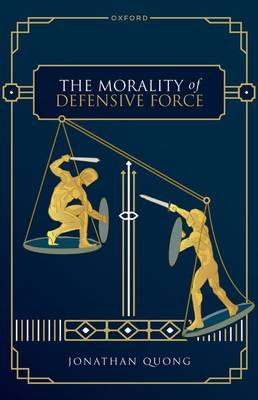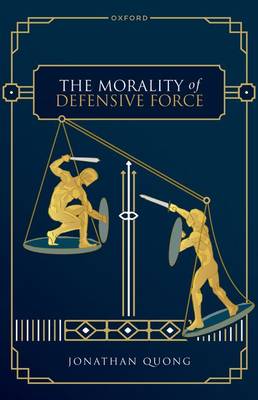
- Afhalen na 1 uur in een winkel met voorraad
- Gratis thuislevering in België vanaf € 30
- Ruim aanbod met 7 miljoen producten
- Afhalen na 1 uur in een winkel met voorraad
- Gratis thuislevering in België vanaf € 30
- Ruim aanbod met 7 miljoen producten
Zoeken
Omschrijving
When is it morally permissible to engage in self-defense or the defense of others? Jonathan Quong defends a variety of novel ideas in this book about the morality of defensive force, providing an original philosophical account of the central moral principles that should regulate its use. We cannot understand the morality of defensive force, he reasons, until we ask and answer deeper questions about how the use of defensive force fits with a more general account of justice and moral rights. In developing this stance, Quong presents new views on liability, proportionality, and necessity. He argues that self-defense can sometimes be justified on the basis of an agent-relative prerogative to give greater weight to one's own life and interests, contrary to the dominant view in the literature. Additionally Quong develops a novel conception of individual rights against harm. Unlike some, who believe that our rights against harm are fact-relative, he argues that our rights against being harmed by others must, in certain respects, be sensitive to the evidence that others can reasonably be expected to possess. The book concludes with Quong's extended defense of the means principle, a principle that prohibits harmfully using other persons' bodies or other rightful property unless those persons are duty bound to permit this use or have otherwise waived their claims against such use.
Specificaties
Betrokkenen
- Auteur(s):
- Uitgeverij:
Inhoud
- Aantal bladzijden:
- 240
- Taal:
- Engels
Eigenschappen
- Productcode (EAN):
- 9780192883315
- Verschijningsdatum:
- 13/01/2023
- Uitvoering:
- Paperback
- Formaat:
- Trade paperback (VS)
- Afmetingen:
- 155 mm x 233 mm
- Gewicht:
- 344 g

Alleen bij Standaard Boekhandel
+ 99 punten op je klantenkaart van Standaard Boekhandel
Beoordelingen
We publiceren alleen reviews die voldoen aan de voorwaarden voor reviews. Bekijk onze voorwaarden voor reviews.








